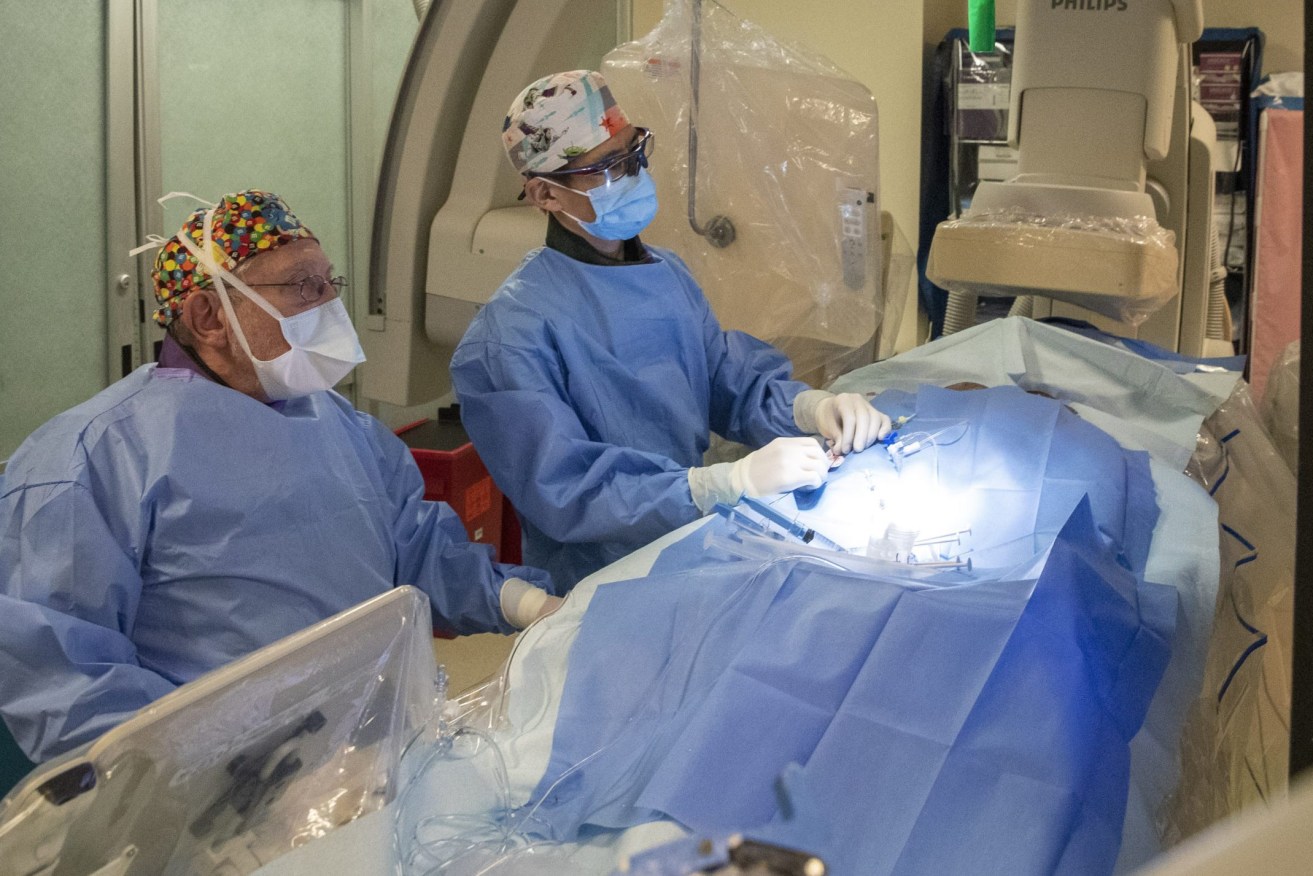Hundreds of hidden casualties as surgery, transplants cancelled
Australia is set to get sicker, the rate of disability will increase, and chronic illness and disease may claim more lives if the health system needs to focus on the pandemic long-term.

Postponement of elective surgery during the coronavirus crisis will cause major backlogs even once the pandemic is over. (Photo: AP Photo/Mary Altaffer)
In Queensland alone, tens of thousands of lower-category elective surgery bookings have already been put on hold indefinitely, although Health Minister Steven Miles saw the coming wave of COVID-19 and pushed through more surgery early in the outbreak. Private hospitals may yet be called on to deal with the backlog, but if the outbreak cannot be contained it may take years for waiting lists to recover.
Specialist and GP appointments have become tougher to make and sometimes even challenging to attend, despite landmark changes to Medicare rebates to facilitate and fund telehealth. People who are unable to travel, or who don’t have access to technology or even to a doctor that does, are at a distinct disadvantage. Even pharmacies have been affected, partly due to drug shortages.
There has never before been a disruption to Australian health services on this scale, nor such a cooperative response from governments. Yet the billions of dollars spent saving tens of thousands of lives from the novel coronavirus – Queensland alone faced 30,000 deaths without action – does not mean there will not be casualties elsewhere.
In public and private hospitals, Intensive Care Units are being prepared, and bolstered, for an anticipated influx in COVID-19 cases.
That means even potentially life-saving organ transplants have been suspended, partly due to the risk that coronavirus poses to recipients during their recovery. By the end of March, various kidney and kidney-pancreas transplant programs had come to a halt, while liver, lung, paediatric and multi-organ transplants were restricted to those patients likely to die within four months without it.
At a meeting this week, the Australian Health Protection Principal Committee made clear life-saving transplants should still go ahead, and medical retrieval teams still travel to obtain suitable organs, but additional precautions should be taken at all stages of the process.
“The expected increased burden on ICU beds during the COVID-19 pandemic poses a risk to availability for recipients post-operatively,” the committee warned.
“The immunosuppressed transplant recipient may also be exposed to the SARS-CoV-2 which increases the risk of being infected or developing severe illness. It is suspected, but not established that COVID-19 may increase mortality in transplant recipients.”
COVID-19 poses a greater threat to older people or those with chronic illnesses such as diabetes or hypertension. It remains to be seen whether those who recover from COVID-19 are left with lasting impairments, or in worse condition than before. Even before the pandemic, Australia’s ageing population, and increase in chronic disease, appeared to be slowing life expectancy gains.
Surge planning in Queensland relies on people who are able to look after themselves at home, with necessary support, to do so in the event of COVID-19 diagnosis. However, for the broader community, social isolation may also compound the economic impact of the pandemic.
An Australian study of the Chinese experience of lockdowns and job losses, published in the journal Psychiatry Research, found people reported their mental and physical health had deteriorated. Several Australian health groups have urged people not to neglect pre-existing conditions, and to retain a good diet and exercise where possible, however the consensus seems to be that it is appropriate for governments and health authorities to focus on COVID-19 given the potential for widespread disaster.
On Thursday, Miles announced the Queensland Government would purchase the Mater Private Hospital in Gladstone, initially to provide a dedicated COVID-19 ward of 34 beds and an intensive care unit of up to 12 beds.
That is despite only three of the 33 patients currently in hospital with COVID-19 being north of the Sunshine Coast. As of Thursday, there had been 953 cases in Queensland – 123 from returning cruise ships – and 372 had recovered, however authorities are demanding restrictions and social distancing continue to limit the spread.
“It’s now more than 10 weeks since our first case of COVID-19 here in Queensland and the fact that overnight we’ve only had 10 additional, positive cases is really quite an incredible result and a credit to all Queenslanders,” Miles said.
“But we need to keep it up.”












